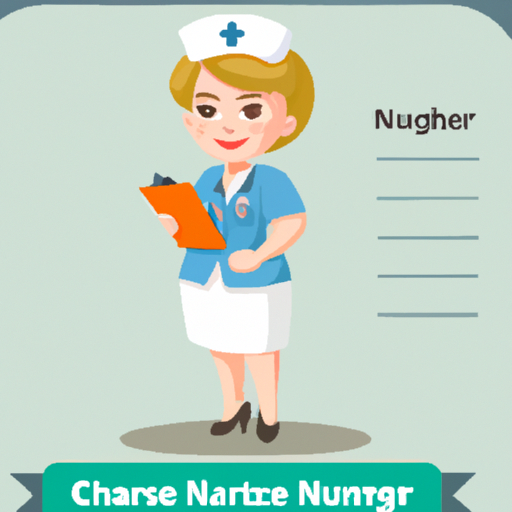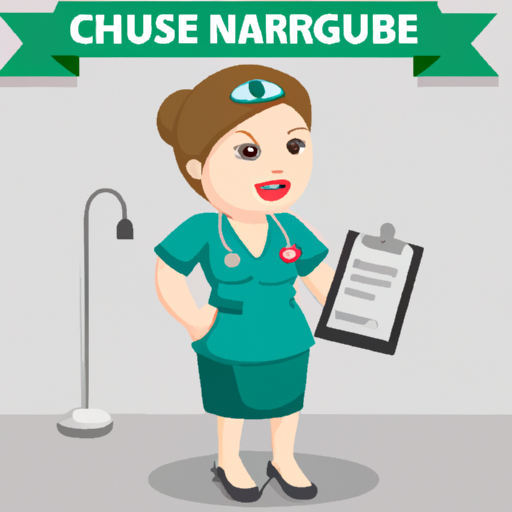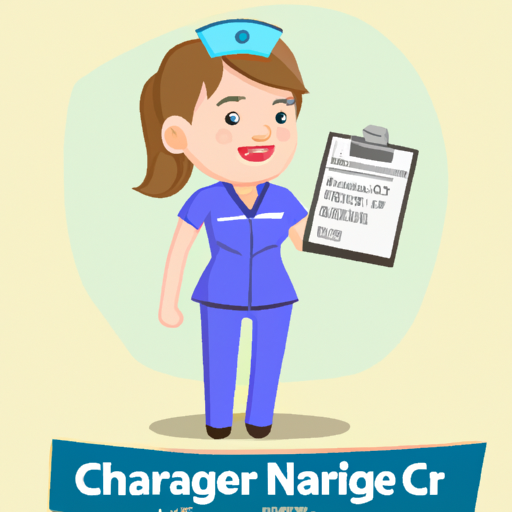The role of a charge nurse within the healthcare sector is multi-faceted and crucial to the smooth operation of patient care units. As a commanding figure, the charge nurse assumes responsibility for overseeing the daily activities of the nursing staff while ensuring optimal patient outcomes. With a meticulous attention to detail, strong leadership skills, and a comprehensive understanding of clinical care, charge nurses play a vital role in maintaining high standards of patient care and fostering teamwork among healthcare professionals. In this article, we will delve into the detailed job description and responsibilities of a charge nurse, highlighting the various tasks, expectations, and essential qualifications required for this pivotal position.
Table of Contents
- Roles and Responsibilities of a Charge Nurse
- Key Skills and Qualifications for a Charge Nurse
- Importance of Leadership and Communication skills in Charge Nursing
- Managing and Supervising Nursing Staff: A Charge Nurse’s Duty
- Ensuring Patient Safety and Quality Care in the Charge Nurse Role
- Collaborating with Medical Team and Multidisciplinary Staff
- Effective Time Management and Prioritization for Charge Nurses
- Adapting to Change and Problem-Solving in the Charge Nurse Role
- To Conclude

Roles and Responsibilities of a Charge Nurse
The charge nurse serves as a pivotal team member in a healthcare setting, assuming various important roles and responsibilities. A charge nurse is primarily responsible for overseeing and supervising the nursing staff, ensuring efficient and effective delivery of patient care. This role requires excellent leadership skills and the ability to make critical decisions quickly and confidently.
The charge nurse is accountable for maintaining a safe and organized work environment, promoting adherence to evidence-based practices and hospital policies. This includes monitoring the quality of care provided by the nursing staff, ensuring compliance with regulatory standards, and implementing continuous improvement initiatives. Moreover, charge nurses play a crucial role in facilitating effective communication and collaboration among the interdisciplinary healthcare team, ensuring optimal patient outcomes.
- Supervising: The charge nurse is responsible for providing guidance, mentorship, and feedback to the nursing staff, promoting professional growth and development.
- Coordinating: As a central point of contact, the charge nurse collaborates with other departments, such as pharmacy and radiology, to ensure seamless patient care and timely interventions.
- Educating and training: The charge nurse is responsible for conducting staff education and training, ensuring competency and adherence to established protocols and best practices.

Key Skills and Qualifications for a Charge Nurse
A charge nurse plays a crucial role in the healthcare system, providing leadership and overseeing the nursing staff in a clinical setting. To excel in this role, several key skills and qualifications are necessary:
- Clinical Expertise: As a charge nurse, a strong foundation of clinical knowledge and skills is essential. This includes a deep understanding of medical procedures, patient care protocols, medication administration, and the ability to quickly assess and respond to patient needs.
- Leadership Abilities: A charge nurse should possess excellent leadership qualities, including the ability to delegate tasks, communicate effectively, and make critical decisions in a timely manner. Strong organizational skills are also necessary to ensure the efficient flow of work and maintain a high standard of patient care.
- Effective Communication: Communication is key in the role of a charge nurse. The ability to effectively communicate with patients, their families, and the healthcare team is vital. This includes listening actively, providing clear instructions, and maintaining open lines of communication to promote collaboration and a positive work environment.
- Problem-Solving Skills: Charge nurses often encounter challenging situations that require quick thinking and effective problem-solving. The ability to analyze complex situations, think critically, and make sound decisions under pressure is essential.
Additionally, a charge nurse should possess strong interpersonal skills, empathy, and the ability to adapt to changing environments seamlessly. They should be detail-oriented, possess strong time management skills, and demonstrate a commitment to continued professional development. By embodying these skills and qualifications, a charge nurse can create a positive impact on patient care and contribute to the overall success of the healthcare team.

Importance of Leadership and Communication skills in Charge Nursing
When it comes to the role of a charge nurse, possessing strong leadership and communication skills is essential for success. In a critical and high-pressure environment, charge nurses must be able to effectively lead their team and communicate crucial information to ensure patient safety and quality care.
Leadership Skills:
- Decision-making: Charge nurses are responsible for making important decisions quickly and confidently, ensuring the best course of action for patient care.
- Problem-solving: They must possess critical thinking skills to identify and address challenges that arise in a fast-paced healthcare setting.
- Delegation: Prioritizing tasks and assigning them to the appropriate team members is vital for optimizing workflow and achieving desired outcomes.
- Motivation and inspiration: Charge nurses must inspire their team members to deliver their best performance, fostering a positive and cohesive work environment.
Communication Skills:
- Clear and concise: The ability to communicate information accurately and effectively, avoiding misunderstandings that could potentially compromise patient care.
- Active listening: Being attentive and empathetic when listening to team members, patients, and families, ensuring that their concerns are acknowledged and addressed.
- Collaboration: Charge nurses must actively collaborate and communicate with other healthcare professionals, promoting seamless coordination of care.
- Conflict resolution: Resolving conflicts and maintaining open lines of communication contribute to a productive and harmonious work environment.
Ultimately, possessing strong leadership and communication skills enables charge nurses to effectively oversee their unit, foster a culture of excellence, and ensure the highest level of patient care.
Managing and Supervising Nursing Staff: A Charge Nurse’s Duty
Responsibilities of a Charge Nurse:
- Oversee and manage the nursing staff on a daily basis, ensuring that all duties and responsibilities are carried out efficiently and effectively.
- Provide guidance and support to nursing staff, promoting professional development and maintaining a positive work environment.
- Assign patient care duties based on staff qualifications and patient needs, ensuring equitable distribution of workload.
- Monitor the delivery of patient care, ensuring adherence to established protocols, policies, and procedures.
- Assess and address patient and family concerns, seeking solutions and promoting patient satisfaction.
- Collaborate with other healthcare professionals to develop and implement patient care plans, ensuring quality and continuity of care.
Supervising Nursing Staff:
- Evaluate nursing staff performance, providing constructive feedback and coaching to enhance individual and team performance.
- Identify training and educational needs of nursing staff, coordinating and facilitating educational opportunities to promote professional growth.
- Ensure compliance with regulatory requirements and standards of practice, conducting regular audits and taking appropriate action to address any deficiencies.
- Maintain accurate and timely documentation of staff performance, patient incidents, and other relevant information.
- Participate in the recruitment and selection process for nursing staff, actively contributing to the hiring decisions.
Ensuring Patient Safety and Quality Care in the Charge Nurse Role
As a charge nurse, one of the primary responsibilities is to ensure patient safety and quality care within the healthcare setting. Charged with overseeing a team of nurses and other healthcare professionals, the charge nurse plays a crucial role in maintaining optimal patient outcomes. To fulfill this duty, the charge nurse must possess a diverse skill set and exhibit strong leadership qualities.
First and foremost, the charge nurse must prioritize patient safety above all else. This involves closely monitoring the care provided by the nursing staff, adhering to established protocols and policies, and promptly addressing any concerns or issues that may arise. By fostering a culture of patient safety, the charge nurse sets the tone for the entire team, ensuring that all staff members are dedicated to providing the highest quality of care.
- Regularly assess patient care plans and make necessary adjustments
- Collaborate with interdisciplinary teams to promote seamless communication and coordination of care
- Maintain a safe and clean environment for patients by following infection control practices
- Ensure all nursing staff are properly trained and educated on best practices and updated protocols
In addition to patient safety, the charge nurse must also focus on delivering quality care. This involves conducting regular audits of documentation and adherence to care plans, as well as evaluating the effectiveness of implemented interventions. The charge nurse should encourage ongoing professional development among the nursing staff, promoting evidence-based practice and continuous learning to enhance the overall quality of care.
Collaborating with Medical Team and Multidisciplinary Staff
The role of a charge nurse extends beyond patient care to include effective collaboration with a medical team and multidisciplinary staff. In this position, it is crucial to foster a coordinated approach to healthcare delivery and ensure seamless communication among all team members. By working closely with physicians, nurse practitioners, and other healthcare professionals, the charge nurse plays an essential role in promoting a holistic and patient-centered experience.
Collaboration within the medical team involves actively participating in rounds, sharing relevant patient information, and discussing appropriate interventions. By engaging in interdisciplinary meetings and communicating updates, the charge nurse can contribute valuable insights and help develop comprehensive care plans. This collaboration extends to fostering strong relationships with ancillary staff members, such as pharmacists, respiratory therapists, and physical therapists, who all contribute to the patient’s well-being. Recognizing the expertise and contributions of each team member fosters a culture of mutual respect and enhances the overall quality of care provided.
Effective Time Management and Prioritization for Charge Nurses
Charge nurses play a critical role in healthcare settings, overseeing the daily operations of nursing units and ensuring quality care delivery. Effective time management and prioritization skills are essential for charge nurses to efficiently handle their responsibilities and provide optimal patient care.
To excel in their role, charge nurses must master the art of managing their time effectively. One key aspect of this is the ability to prioritize tasks based on urgency and importance. This involves making informed decisions about which tasks to tackle first and allocating appropriate time to each task. Utilizing tools such as to-do lists and calendars can be invaluable in ensuring that no crucial tasks are overlooked. **Additionally, charge nurses should consider implementing the following strategies to enhance their time management skills:**
– **Delegating tasks:** Charge nurses should have a keen eye for recognizing the strengths and abilities of their team members. By delegating routine or less critical tasks to qualified staff, charge nurses can free up their own time to focus on higher-priority responsibilities.
– **Setting realistic goals:** It is crucial for charge nurses to set realistic goals for themselves and their team. This involves considering the available resources, staffing levels, and patient acuity. By setting achievable goals, charge nurses can prevent themselves from feeling overwhelmed and ensure that their time is allocated appropriately to meet those goals.
– **Minimizing distractions:** In a fast-paced healthcare environment, distractions can easily derail productivity. Charge nurses should strive to minimize interruptions and distractions as much as possible. This may involve adopting techniques such as closing office doors, scheduling uninterrupted work time, and redirecting non-urgent inquiries to appropriate staff members.
Adapting to Change and Problem-Solving in the Charge Nurse Role
As a charge nurse, one of the most crucial aspects of your job description is the ability to adapt to change and effectively problem-solve in a fast-paced healthcare environment. The role requires you to navigate through various challenges and unexpected situations, all while ensuring the smooth functioning of the nursing team and delivery of quality patient care.
To excel in this position, you must possess exceptional adaptability skills. Having a flexible mindset allows you to seamlessly adjust to new protocols, procedures, and changes in patient conditions. It is essential to stay updated on the latest evidence-based practices and industry regulations, actively seeking opportunities for professional development. Additionally, effective problem-solving skills are paramount. You will encounter complex medical situations, staffing issues, and logistical challenges, necessitating your ability to identify the root cause of a problem, develop innovative solutions, and implement them efficiently. Communication and collaboration are key; a charge nurse should be able to involve and engage the multidisciplinary team to collectively address any obstacles that arise. By embracing change and leveraging problem-solving abilities, you will effectively lead your team towards overcoming challenges and achieving optimal patient outcomes.
To Conclude
In conclusion, the charge nurse job description encompasses a wide range of responsibilities that require not only a solid clinical background but also exceptional leadership and communication skills. This vital role plays a crucial part in overseeing the efficient operation of a healthcare unit and ensuring the delivery of safe, quality patient care. By optimizing care coordination, managing resources, and fostering a collaborative team environment, charge nurses contribute significantly to the overall success of a healthcare facility. With their ability to adapt to various situations and effectively manage multiple tasks simultaneously, charge nurses provide invaluable support to both their colleagues and patients alike. As the demands of the healthcare industry continue to evolve, this position remains essential in elevating the standard of care provided and upholding the integrity of the nursing profession. For those aspiring to assume the role of a charge nurse, it is crucial to acquire the necessary qualifications, seize ongoing educational opportunities, and possess the resilience required to thrive in this dynamic and rewarding career. With dedication and perseverance, charge nurses have the potential to make a lasting impact on the lives of countless individuals and contribute to the betterment of healthcare as a whole.
